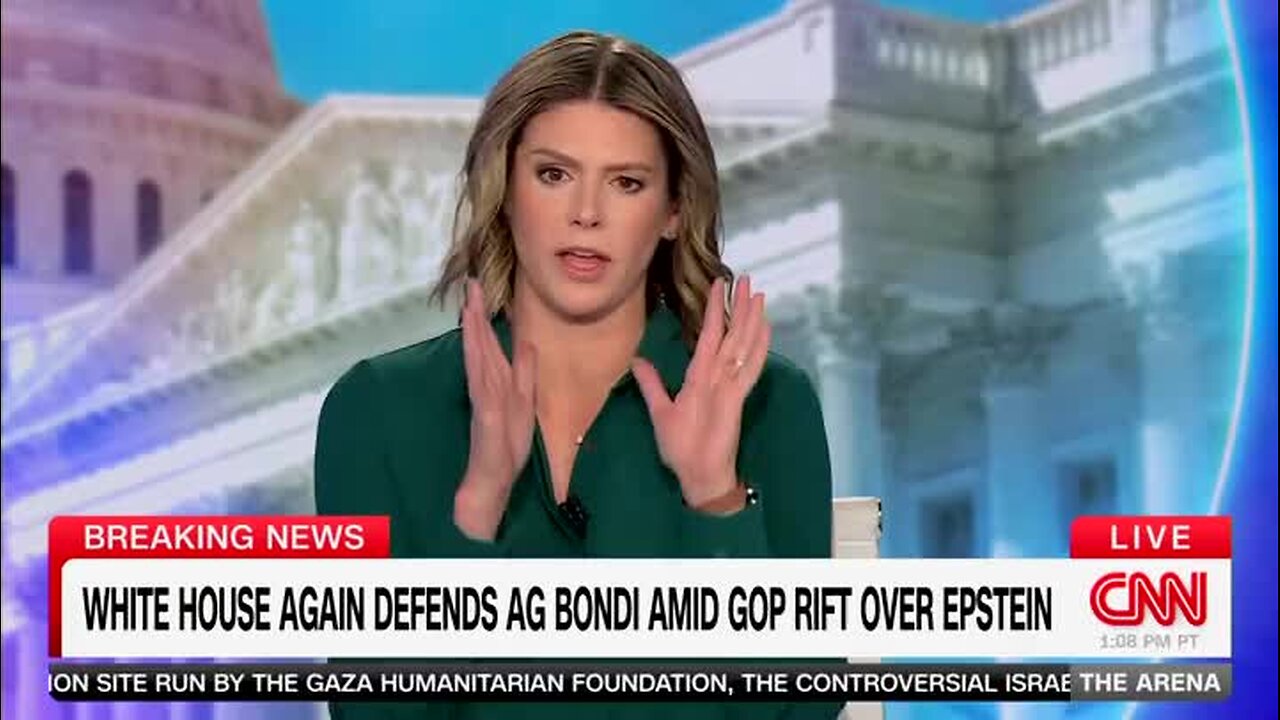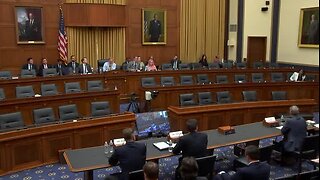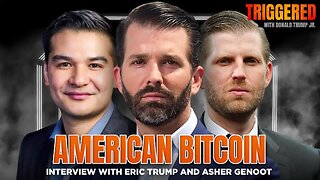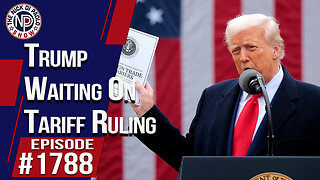Premium Only Content

Andrew McCabe: ‘There Isn‘t Actually Any Public Right To Be Able to See into Sensitive FBI Files’
HUNT: “And so, to this point, Andy McCabe, can you help us understand, considering your background, the — what the truth may actually be here, because it‘s clear that — I mean, so many Americans think the government is covering something up, right? Trump campaigned on releasing this stuff. He gets into office. He now says nothing to see here. And of course, Democrats who, you know, could have released this when they were in power, didn‘t, are seizing on the political opportunity to say, yeah, come on, release it. What could the real reason be to not release something like this that most people would find to be plausible and credible?”
McCabe: “Okay. So, that‘s a great question. Let‘s start with the — with the first premise, which is that there isn‘t actually any public right to be able to see into sensitive FBI files, right? You can file a FOIA request, but there are something like nine different exceptions to FOIA. And some of them are, you know, sensitive material, investigative material needed in a prosecution, things like that. So it‘s not — it‘s — this is uncommon for people to be screaming for information from an investigative file. This investigative file likely — I have not seen it, but I — but it likely has a lot of information that should be protected. There‘s likely grand jury material in there that‘s protected by grand jury secrecy. There are — there are, I‘m sure, confidential witnesses or witnesses who were promised confidentiality, so they can‘t be exposed. There‘s information in there that might reveal it might be a violation of the Privacy Act. We also know that there are several federal judges who have issued sealing orders, both in the criminal investigation — we know that happened in the Ghislaine Maxwell case — and in some of these civil court filings, lawsuits that victims have filed in order to — in order to get compensation for their injuries and what they‘ve suffered. And in all these cases, judges have said, we are not going to reveal the names of all these other people who‘ve been — whose names we‘ve come across in the course of this investigation. Now, what those names are, is it a client list? Likely not. The guy wasn‘t probably running an official business and keeping business records of prostitution, but what he did have was a phone book, right, that had the names and contact numbers of the many, many people, probably hundreds of people, that he was in direct contact with. Now, simply being in his phone book doesn‘t necessarily mean you were a part of a child sex trafficking ring. So, revealing someone‘s name as being a contact of Epstein, you can see how detrimental that would be to someone‘s reputation, that might give rise to a cause of action against the Justice Department. So, there‘s a lot of layers here of protection for people who are — whose names came up in the investigation but who were never prosecuted for anything.”
HUNT: “And —“
McCabe: “And so, DoJ doesn’t typically identify people who they don’t charge.”
-
 0:59
0:59
Grabien
1 day agoJasmine Crockett: Trump Is ‘the Biggest Threat to Free Speech Right Now’
17 -
 LIVE
LIVE
Rallied
2 hours ago $0.76 earnedWarzone Solo Challenges
381 watching -
 57:40
57:40
MattMorseTV
2 hours ago $2.84 earned🔴Trump just SHATTERED the RECORD.🔴
9.69K42 -
 LIVE
LIVE
Total Horse Channel
4 hours ago2025 CSI3* A Coruña Porsche - Grand Prix
56 watching -
 LIVE
LIVE
Badlands Media
15 hours agoThe SITREP Ep. 128
699 watching -
 LIVE
LIVE
Mally_Mouse
1 hour agoThrowback Thursday! Let's Play: Cuphead
105 watching -
 LIVE
LIVE
StevieTLIVE
1 hour agoWarzone HYPE Duos with GloryJean
23 watching -
 1:05:11
1:05:11
Donald Trump Jr.
3 hours agoBuilding the Future with American Bitcoin, Plus Eric's Triggered Debut! | TRIGGERED Ep.272
94.2K53 -
 LIVE
LIVE
MissesMaam
6 hours agoLetting a Game from 2009 RageBait Me | Achievement Hunting PVZ 💚✨
38 watching -
 1:01:40
1:01:40
The Nick DiPaolo Show Channel
5 hours agoTrump Waiting On Tariff Ruling | The Nick Di Paolo Show #1788
22.7K21